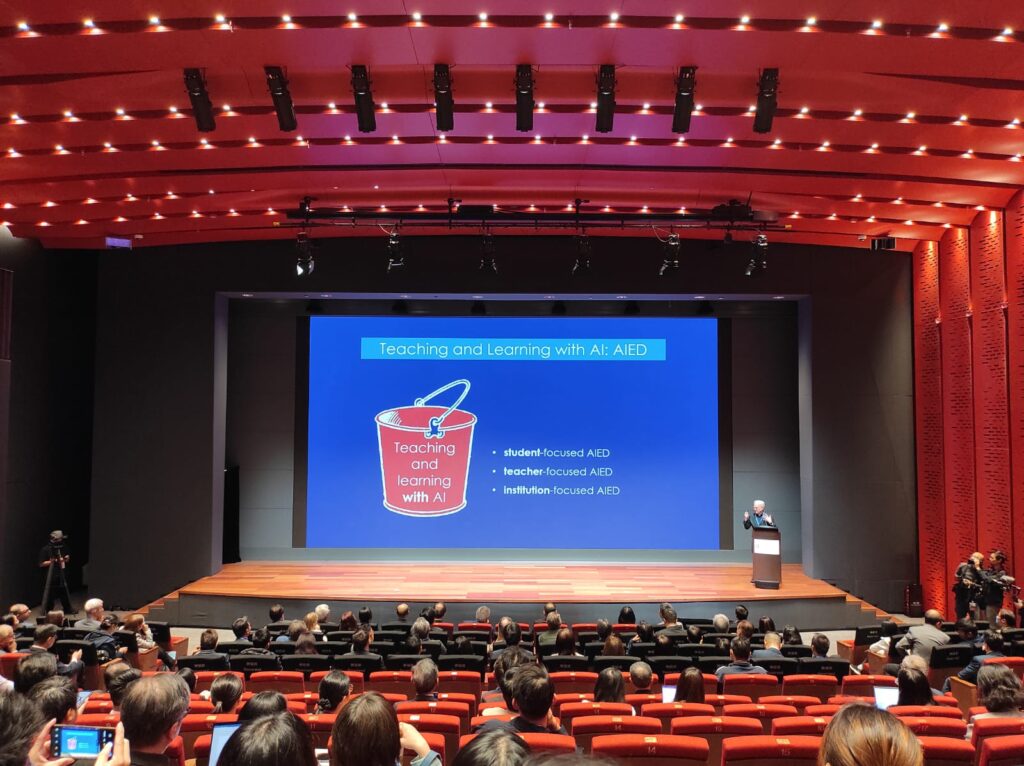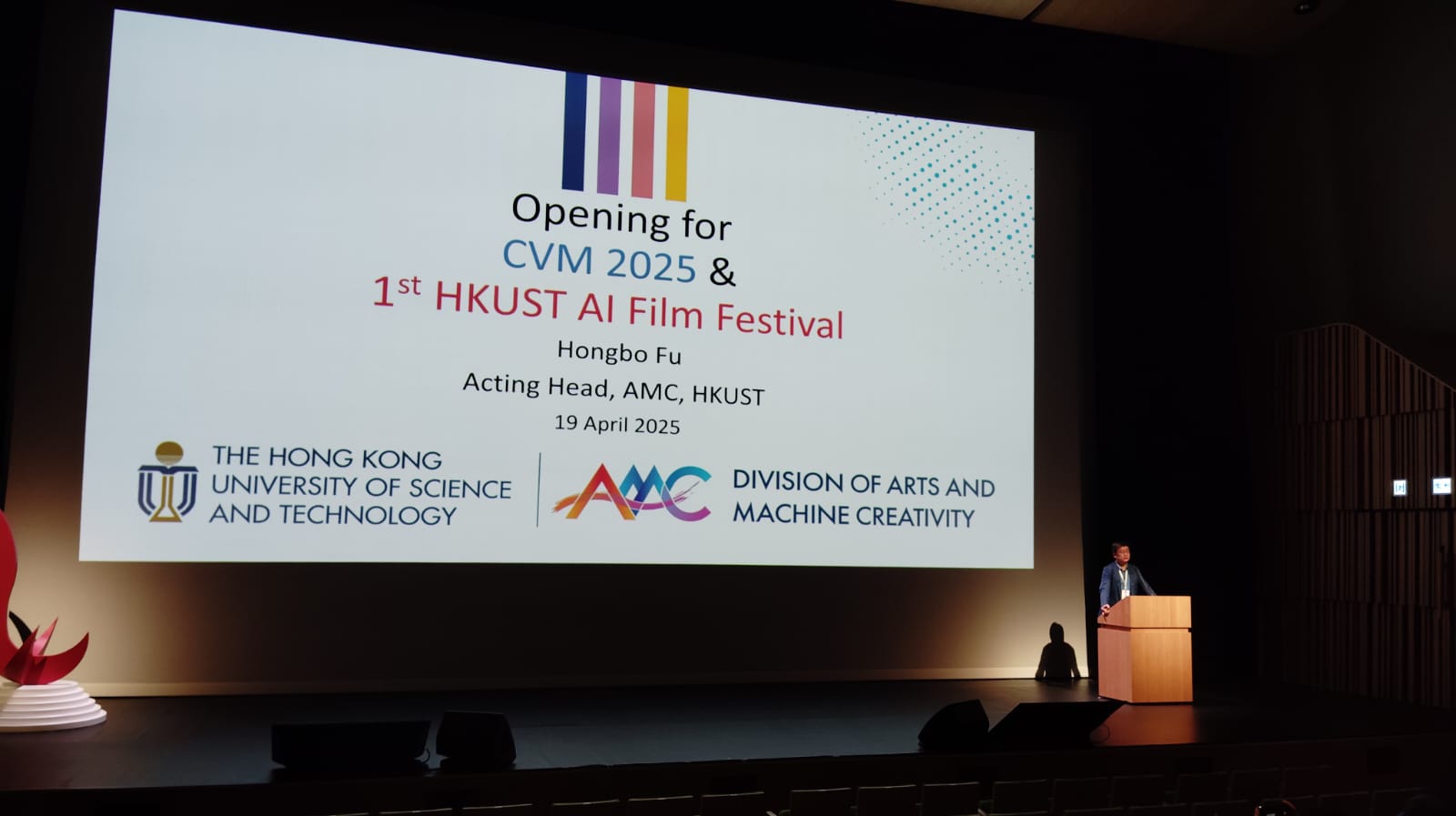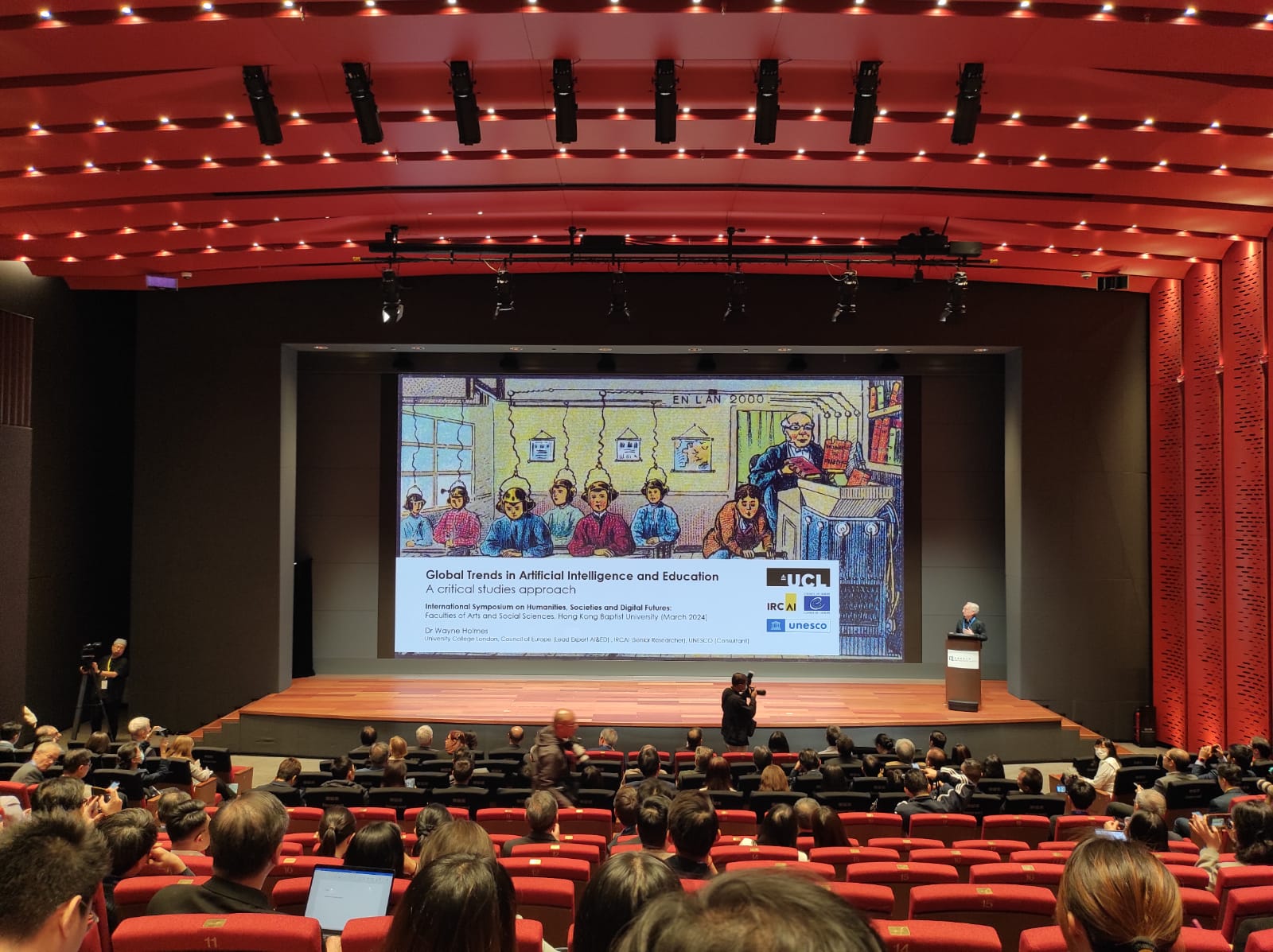The Double-Edged Sword of AI: Navigating Cognitive Risks and Rewards
A report after hearing Prof. Wayne Holmes’ keynote at a recent Hong Kong AI Symposium organised by Hong Kong Baptist University (2-days event)

In the rapidly evolving landscape of artificial intelligence (AI), the conversation often oscillates between the awe-inspiring potential of AI to transform industries and the lurking apprehensions about its impact on human cognition and behavior. As we delve deeper into the age of AI, it’s crucial to examine how this technological revolution could potentially harm our cognitive functions, while also considering the insights of experts like Professor Wayne Holmes of UCL, who offers a nuanced view on AI’s role in education and cognitive development.
Links to the two-day conference video archive can be found below.
The Cognitive Conundrum
AI, particularly in the form of generative AI and large language models (LLMs) like general purpose transformers (GPTs), has demonstrated capabilities that rival, and in some aspects, surpass human cognitive functions. Research suggests that GPTs (like GPT4, Claude, Bard, Co-Pilot, Gemini) could reason as well as undergraduate students, a milestone that both fascinates and alarms educators and cognitive scientists alike[3]. The prowess of AI in mimicking human-like reasoning raises questions about our increasing reliance on AI for decision-making, problem-solving, and even creative processes. This dependency could potentially lead to a diminishment in critical thinking skills and a loss of creativity and human intuition, as individuals might lean too heavily on AI systems, thereby weakening their understanding of complex systems and processes[4].
The Perspective of Professor Wayne Holmes
Professor Wayne Holmes, a notable figure in the intersection of AI and education at UCL, provides valuable insights into how AI can be harnessed positively in educational settings while acknowledging the challenges it presents. Holmes emphasizes the critical role of AI in tailoring education to individual learning needs, arguing that AI can adapt the learning environment to enhance the learning experience[16]. However, he also cautions against the uncritical adoption of AI, highlighting the importance of understanding AI’s limitations and ensuring that it serves as a complement to, rather than a replacement for, human interaction and traditional learning methods[2][20].
The Mental Health Equation
The integration of AI into our daily lives also poses potential risks to mental health, with studies indicating that AI could exacerbate mental health inequities and contribute to psychological sequelae among vulnerable populations[1]. The impersonal nature of AI-generated responses and the potential for AI to perpetuate biases and stereotypes further complicate its impact on cognitive and emotional well-being[1].
Navigating the AI Landscape
As we navigate the complex terrain of AI’s influence on cognitive behavior, it’s imperative to strike a balance between leveraging AI’s potential benefits and mitigating its risks. This involves:
- Critical Engagement: Encouraging a critical approach to AI, where users are mindful of their reliance on AI and actively seek to maintain and develop their cognitive skills.
- Ethical AI Development: Prioritizing the development of AI systems that are transparent, unbiased, and designed with human values at their core[4][10].
- Educational Integration: Following the lead of experts like Professor Holmes, integrating AI into educational settings in a way that enhances learning while fostering critical thinking and problem-solving skills[16][20].
Conclusion
The journey of AI is fraught with both promise and peril. As we marvel at AI’s capabilities, we must also remain vigilant about its potential to alter our cognitive landscape. By adopting a balanced and critical perspective, championed by thought leaders like Professor Wayne Holmes, we can harness the power of AI to enrich our cognitive and educational experiences without compromising our mental agility and well-being.
Here are the links to the Youtube channels.
International Symposium on Humanities, Societies, and Digital Futures
Day 1: https://lnkd.in/gB24bhym
Day 2: https://lnkd.in/gzhvPpKd
This blog post aims to provide a balanced view of AI’s impact on cognitive behavior, drawing on the expertise of Professor Wayne Holmes and incorporating research findings to offer a comprehensive overview of the challenges and opportunities presented by AI in our cognitive lives.
Citations:
[1] https://www.ncbi.nlm.nih.gov/pmc/articles/PMC10690520/
[2] https://profiles.ucl.ac.uk/48674-wayne-holmes
[3] https://economictimes.com/tech/technology/research-suggests-gpt-3-reasons-as-well-as-undergraduate-students/articleshow/102317871.cms
[4] https://www.techtarget.com/whatis/feature/Ways-AI-could-bring-more-harm-than-good
[5] https://twitter.com/wayneholmes?lang=en
[6] https://www.ncbi.nlm.nih.gov/pmc/articles/PMC10339472/
[7] https://www.ncbi.nlm.nih.gov/pmc/articles/PMC10466077/
[8] https://www.youtube.com/watch?v=18Ho4AKSdsM
[9] https://www.nature.com/articles/d41586-023-03507-3
[10] https://www.forbes.com/sites/bernardmarr/2023/06/02/the-15-biggest-risks-of-artificial-intelligence/?sh=58deb4852706
[11] https://www.oxford-aiethics.ox.ac.uk/ethics-ai-lunchtime-research-seminars-ethics-artificial-intelligence-and-education-critical-studies
[12] https://www.ncbi.nlm.nih.gov/pmc/articles/PMC10445029/
[13] https://www.cnet.com/health/mental/popular-ai-tools-can-hurt-your-mental-health-new-study-finds/
[14] https://www.youtube.com/watch?v=-cscaL2ClS4
[15] https://www.frontiersin.org/articles/10.3389/fcogn.2023.1203077/full
[16] https://www.researchgate.net/publication/299561597_Intelligence_Unleashed_An_argument_for_AI_in_Education
[17] https://www.nature.com/articles/s41599-023-01787-8
[18] https://sevic.org/wayne-holmes/
[19] https://www.theglobeandmail.com/business/commentary/article-artificial-intelligence-could-have-damaging-effects-on-our-mental/
[20] https://www.linkedin.com/posts/learnest_learnest-session-1-dr-wayne-holmes-activity-7171936124804780032-bCys










